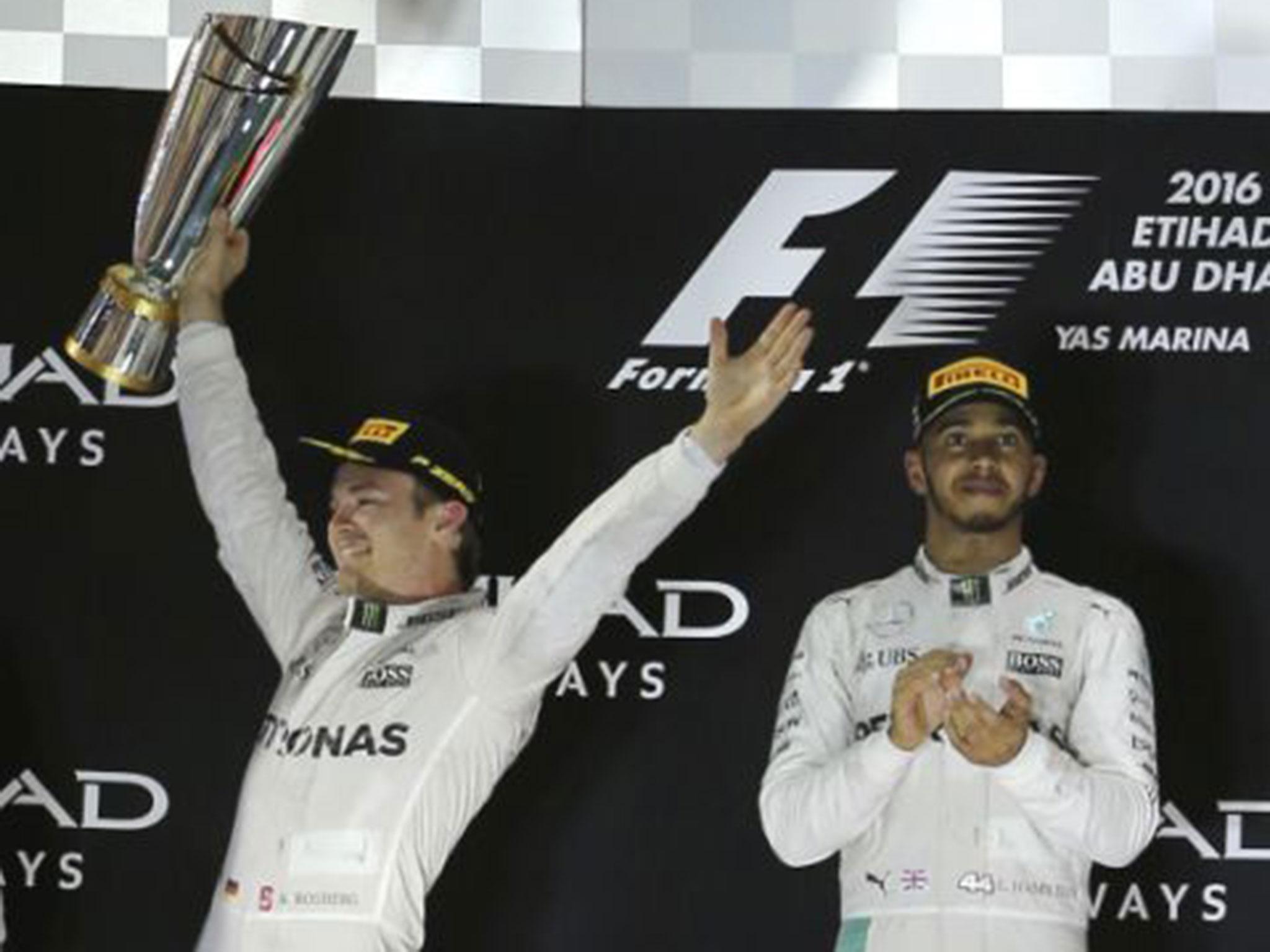Formula One viewing figures drop by 5.1m in Britain due to Lewis Hamilton championship failure
Exclusive: British audiences accounted for half of F1's total fall of 10m viewers in 2016

Your support helps us to tell the story
From reproductive rights to climate change to Big Tech, The Independent is on the ground when the story is developing. Whether it's investigating the financials of Elon Musk's pro-Trump PAC or producing our latest documentary, 'The A Word', which shines a light on the American women fighting for reproductive rights, we know how important it is to parse out the facts from the messaging.
At such a critical moment in US history, we need reporters on the ground. Your donation allows us to keep sending journalists to speak to both sides of the story.
The Independent is trusted by Americans across the entire political spectrum. And unlike many other quality news outlets, we choose not to lock Americans out of our reporting and analysis with paywalls. We believe quality journalism should be available to everyone, paid for by those who can afford it.
Your support makes all the difference.Formula One’s television audience in Britain crashed by 5.1m viewers last year, driven by Lewis Hamilton failing to win a fourth championship and coverage switching from the BBC to Channel 4.
Hamilton’s Mercedes team mate Nico Rosberg won the first four races and ended up with a total of nine victories in 2016. Although Hamilton won one more than that he lost the championship at the season-ender in Abu Dhabi to Rosberg who announced that he was retiring just five days later.
Even though the title battle went down to the wire, and the number of races hit a record 21, F1’s Global Media Report reveals that the number of viewers in Britain reversed to a 12-year low of 21.8m.
The Media Report says “there are several factors to take into account, one being the change in broadcaster the other potentially being the dip in fortune of Lewis Hamilton.”
It highlights F1’s struggle to appeal in Britain where its home Grand Prix is under threat after spectator numbers fell by 1,000 to 139,000 last year.
The drop in Britain comprised half of F1’s total fall of 10m viewers in 2016. The worldwide audience dropped to 390m marking the sixth straight year that the number of F1 viewers has declined. It has lost a total of 137m since 2010 driven by a move to Pay TV. Coverage is split between free-to-air and Pay TV in major markets such as Germany, Italy and Britain where Channel 4 only gets the live rights to 10 races whilst Sky Sports screens every session live.
The decline is on track to continue as Sky will become the exclusive broadcaster of F1 in Britain from 2019 in a deal estimated to be worth $150m annually. Pay TV broadcasters are prepared to outbid their free-to-air rivals for F1 as it fuels subscriber numbers. They tend to have smaller audiences than broadcasters which don’t charge to watch and this can dent the teams’ income from sponsors as rates are proportionate to the number of viewers. However, the increased fees from Pay TV broadcasters more than compensates for this as the teams share 63 per cent of F1’s profits as prize money.
The task of reversing F1’s declining appeal in Britain is down to American investment firm Liberty Media which bought the sport for $8bn in January. It promptly replaced F1’s supremo Bernie Ecclestone with former Rupert Murdoch lieutenant Chase Carey whilst ex-Mercedes team boss Ross Brawn was appointed to deal with the teams.
Liberty has indicated that it wants to sign more Pay TV deals but it also wants to make F1 less predictable. Mercedes has won the championship for the past three years running with Red Bull taking the title in each of the four years before that.
“Fundamentally Chase and Ross Brawn are trying to make these races more interesting, more comparative, more exciting,” says Liberty’s chief executive Greg Maffei. “I think there is uniformity about many of the actions that it will take to do that. Whether we can execute on those and how long it will take, that is still open.”
He adds that “one of the things we need to do is make the races more compelling, exciting and more beneficial to promoters. Take best practices which worked in exciting races like Mexico City, like Singapore, like Abu Dhabi and bring them across the globe to traditional tracks, which may not have had as much financing but also just don’t have as exciting a product at the moment.”

This week the F1 teams have been in Barcelona testing new regulations which give the cars wider tyres and wings in a bid to boost top speed and improve overtaking opportunities. With the season-opener in Australia taking place in three weeks we will soon find out whether it revs up the viewing figures.
Join our commenting forum
Join thought-provoking conversations, follow other Independent readers and see their replies
Comments